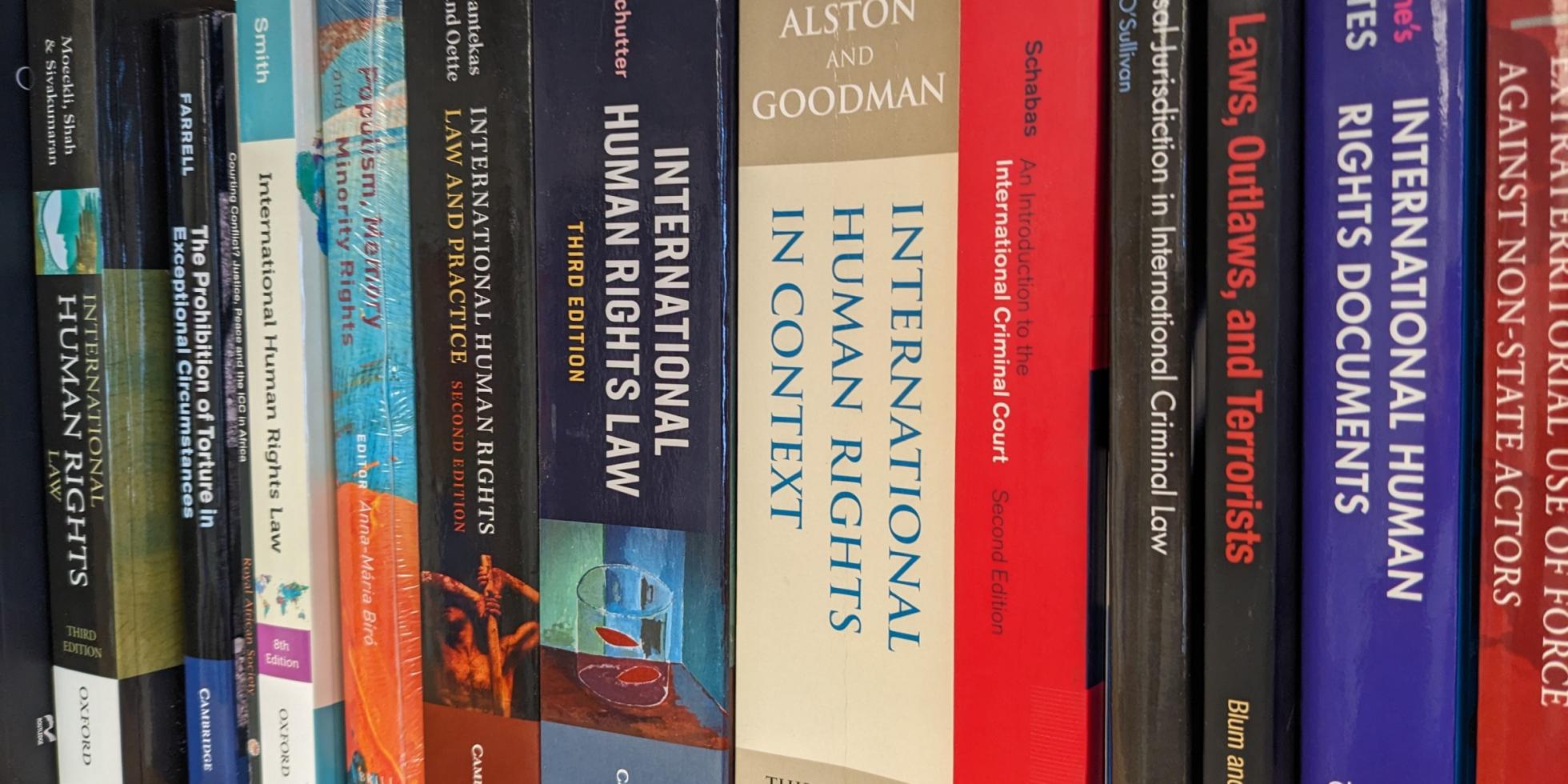The virtual human rights library brings together resources from multiple libraries and information services, both internal and external, to create an online hub dedicated to the study of human rights. This curation is unique in its interdisciplinary concerns and focuses on writings and research from social sciences, humanities, and law.
The virtual library is continually updated with the latest academic research in issue areas, as well as with relevant films, recorded conversations, and other forms of media.
Please Note:
The Virtual Library is usable by all visitors, but the hyperlinks to materials listed are for UChicago community members with a CNet ID and password.
Please direct feedback and suggestions to Kathleen Cavanaugh.
For technical assistance, email pozenhumanrights @ uchicago.edu.
Searchable Database
Click into the dropdowns to select the disciplines, keywords, and media type for your search, and then hit "Apply."
"Theorising the power of citizenship as claims-making."
I advance a conceptual approach to citizenship as membership through claims-making. In this approach, citizenship is a relational process of making membership claims on polities, people and institutions, claims recognized or rejected within particular normative understandings of citizenship. Such a...
"Theorizing refugeedom: becoming young political subjects in Beirut."
Refugees can be formed as “subjects” as they navigate forced displacement in countries that are not their own. In particular, everyday life as the politicized Other, and as humanitarianism’s depoliticized beneficiary, can constitute them as political subjects. Understanding these produced...
"Threat, Resistance, and Collective Action: The Cases of Sobibór, Treblinka, and Auschwitz."
How and why do movements transition from everyday resistance to overt collective action? This article examines this question taking repressive environments and threat as an important case in point. Drawing on primary and secondary data sources, I offer comparative insights...
"Toward a new sociology of rights: A genealogy of “buried bodies” of citizenship and human rights."
Although a thriving social science literature in citizenship has emerged in the past two decades, to date there exists neither a sociology of rights nor a sociology of human rights. Theoretical obstacles include the association of rights with the philosophical...
"Towards data justice? The ambiguity of anti-surveillance resistance in political activism"
The Snowden leaks, first published in June 2013, provided unprecedented insights into the operations of state-corporate surveillance, highlighting the extent to which everyday communication is integrated into an extensive regime of control that relies on the ‘datafication’ of social life...
"Traditional and Modern Approaches to Customary International Law: A Reconciliation,"
The demise of custom as a source of international law has been widely forecasted. This is because both the nature and the relative importance of custom’s constituent elements are contentious. At the same time, custom has become an increasingly significant...
"Transitional justice as social control: political transitions, human rights norms and the reclassification of the past."
This article offers an interpretation of transitional justice policies – the efforts of post‐conflict and post‐dictatorship societies to address the legacy of past abuses – as a form of social control. While transitional justice is commonly conceptualized as responding to...
"Transnational Diffusion and Regional Resistance: Domestic LGBT Association Founding, 1979–2009."
In recent decades, scholars of world cultural diffusion have begun to examine the structure of the world society itself, finding evidence of regionalization within the network of international nongovernmental organizations (INGOs). There is little research, however, on how the structure...
"Transnational mobilization and civil rights in Northern Ireland."
While usually seen in positive terms, transnational mobilization can sometimes hurt movements as well as help them. An examination of the transnational network of organizations supporting civil rights demands in Northern Ireland between 1967 and 1972 suggests that international involvement...

